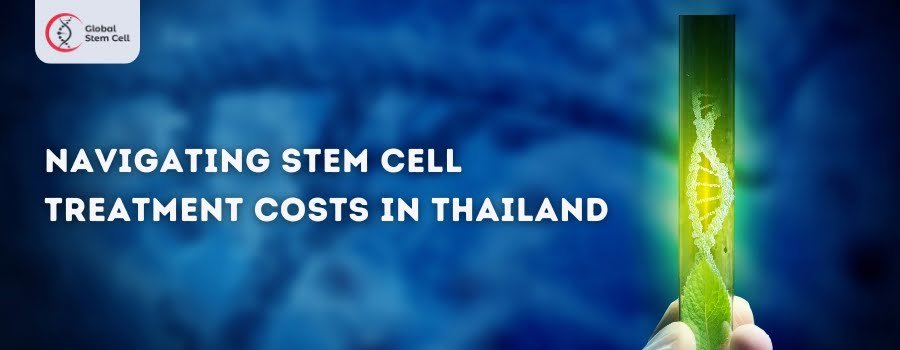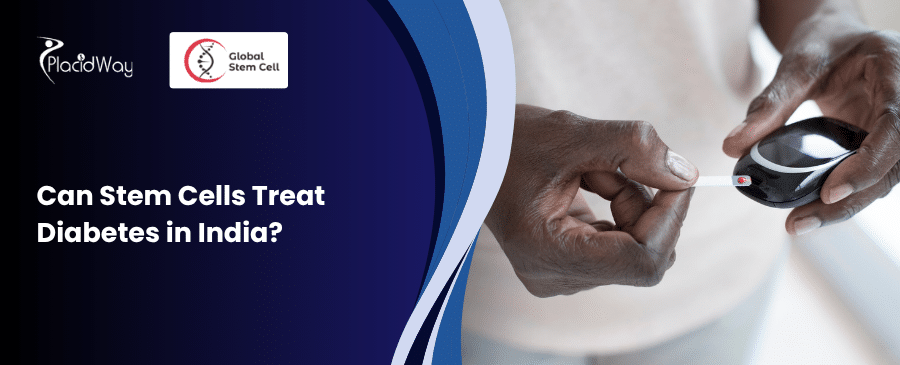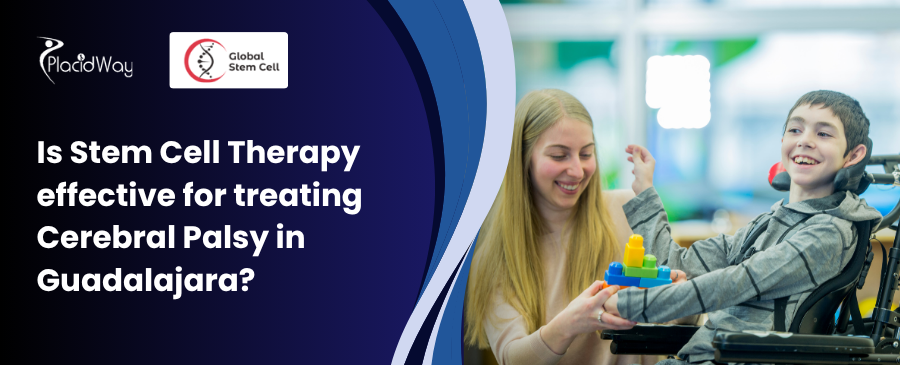
Stem cell treatment is something many people are talking about. It’s a special kind of therapy that holds promise for treating various health problems. Now, imagine traveling to Thailand for this treatment. It’s not just a trip; it’s a journey toward better health. But before you pack your bags, there’s something important to understand: the cost.
Thailand is known for its beautiful beaches and vibrant culture, but it’s also gaining fame for its advanced medical care. People from around the world are flocking to Thailand for treatments like stem cell therapy. However, figuring out how much it will cost can be tricky.
In this guide, we’ll break down everything you need to know about stem cell treatment costs in Thailand. From understanding what stem cell therapy is to exploring why Thailand is a popular destination for it, we’ll cover it all. So, if you’re considering stem cell treatment in Thailand, keep reading to make informed decisions about your health and your wallet.
Table of Content
The Appeal of Stem Cell Treatment in Thailand
Stem cell treatment has gained considerable appeal globally due to its potential to address a wide range of medical conditions and its promising results in various clinical trials. Thailand, in particular, has become a popular destination for stem cell therapy for several reasons:
- Advanced Medical Facilities: Thailand boasts state-of-the-art medical facilities and hospitals equipped with the latest technology for stem cell research and treatment. These facilities adhere to international standards and are staffed by highly qualified medical professionals.
- Cost-Effective Treatment: Compared to many Western countries, stem cell therapy in Thailand is often more affordable. This cost advantage attracts patients seeking alternative treatment options, especially those from countries with high healthcare costs or limited access to certain therapies.
- Regulatory Environment: Thailand has established regulations governing stem cell research and therapy, ensuring patient safety and ethical standards. While remaining vigilant, these regulations are often perceived as less stringent than those in some Western countries, allowing for more flexibility and innovation in treatment approaches.
- Accessibility: Thailand’s geographical location and well-developed tourism infrastructure make it easily accessible to international patients. Many hospitals and clinics offering stem cell therapy provide assistance with travel arrangements, accommodation, and language interpretation services, making the process more convenient for patients from abroad.
- Diverse Treatment Options: Thailand offers a wide range of stem cell therapies targeting various medical conditions, including neurological disorders, orthopedic issues, cardiovascular diseases, and cosmetic procedures. This diversity of treatment options attracts patients seeking solutions for different health concerns.
- Positive Patient Experiences: Numerous patients have reported positive outcomes and experiences with stem cell treatment in Thailand. Testimonials and success stories shared by these patients contribute to the country’s reputation as a destination for cutting-edge medical care.
- Combination Therapies: Many clinics in Thailand offer integrated treatment approaches, combining stem cell therapy with other complementary treatments such as physical therapy, traditional medicine, and holistic wellness programs. This holistic approach appeals to patients looking for comprehensive solutions to their health issues.
Factors Affecting Stem Cell Treatment Costs
Several factors influence the cost of stem cell treatment, and these factors can vary depending on the country, the type of treatment, the medical facility, and other variables. Here are some key factors that can affect the cost of stem cell treatment:
- Type of Stem Cell Therapy: Different types of stem cell therapies exist, each tailored to specific medical conditions. For example, treatments involving autologous (patient’s own) stem cells may be less expensive than those using allogeneic (donor) stem cells. The complexity of the procedure, the source of the stem cells, and whether the cells are manipulated or expanded in a laboratory can also impact costs.
- Treatment Protocol: The treatment protocol, including the number of stem cell injections or infusions required, the duration of therapy, and any additional procedures or medications involved, can significantly affect the overall cost. Some conditions may require multiple sessions or a combination of stem cell therapies, which can increase expenses.
- Medical Facility and Location: The choice of medical facility plays a crucial role in determining the cost of stem cell treatment. Facilities with advanced infrastructure, experienced medical staff, and specialized expertise may charge higher fees. Additionally, the geographical location of the facility can influence costs, with treatments in countries with lower labor and operational expenses typically being more affordable.
- Expertise of Medical Professionals: The qualifications, experience, and reputation of the medical professionals administering the stem cell treatment can impact pricing. Clinics or hospitals with renowned specialists in stem cell research and therapy may charge higher fees for their services.
- Regulatory Environment: The regulatory framework governing stem cell research and therapy in a particular country can influence costs. Strict regulatory requirements may increase administrative expenses for medical facilities, which could be reflected in the overall treatment cost.
- Additional Services and Amenities: Some medical facilities may offer additional services such as pre-treatment evaluations, post-treatment care, rehabilitation programs, accommodation, transportation, and concierge services. These supplementary services can contribute to the total cost of stem cell treatment.
- Travel Expenses: For patients seeking stem cell treatment abroad, travel-related expenses such as airfare, accommodation, meals, visas, and local transportation should be factored into the total cost. These expenses can vary depending on the distance traveled and the standard of living in the destination country.
Cost Breakdown of Stem Cell Treatment in Thailand
The cost breakdown of stem cell treatment in Thailand can vary depending on several factors, including the type of stem cell therapy, the medical facility, the patient’s specific medical condition, and any additional services or amenities included in the treatment package.
- Stem Cell Therapy Procedure: This includes the actual stem cell treatment, including stem cell isolation, processing, and administration. The cost can vary based on the type of stem cells used (autologous or allogeneic), the number of injections or infusions required, and whether the cells are manipulated or expanded in a laboratory.
- Medical Consultation and Evaluation: Many stem cell treatment packages in Thailand include pre-treatment consultations, medical assessments, and evaluations by healthcare professionals to determine the patient’s eligibility for the therapy and to develop a personalized treatment plan.
- Hospital or Clinic Fees: This includes fees associated with the use of medical facilities, equipment, and infrastructure for stem cell treatment procedures. The cost may vary depending on the reputation and accreditation of the hospital or clinic, as well as the level of care provided.
- Medical Professional Fees: Charges for the services of medical professionals, including stem cell specialists, physicians, nurses, and support staff involved in the treatment process. Fees may be based on the complexity of the procedure, the expertise of the healthcare providers, and the duration of patient care.
- Laboratory and Testing Costs: Expenses related to laboratory tests, diagnostic imaging, and other medical assessments conducted before, during, and after the stem cell treatment. These tests help assess the patient’s health status, monitor treatment progress, and ensure safety and efficacy.
- Medications and Supplements: The cost of medications, supplements, and supportive therapies prescribed as part of the treatment protocol. This may include immunosuppressants (if applicable), antibiotics, pain relievers, and nutritional supplements to optimize the patient’s health and facilitate the success of the stem cell therapy.
- Additional Services and Amenities: Optional services or amenities provided by the medical facility, such as accommodation, transportation, translation services, and concierge assistance for international patients. These extras may incur additional charges but can enhance the patient’s overall treatment experience and convenience.
- Follow-up Care and Monitoring: Fees associated with post-treatment follow-up appointments, medical consultations, and monitoring to assess the patient’s progress, address any complications or side effects, and optimize treatment outcomes.
Average Costs of Stem Cell Treatment in Thailand
The average cost of stem cell treatment in Thailand can vary widely depending on factors such as the type of stem cell therapy, the specific medical condition being treated, the medical facility or clinic chosen, and any additional services included in the treatment package. However, to provide a rough estimate, here are some typical price ranges for various types of stem cell treatments in Thailand:
| Medical Condition | Average Cost Range (USD) |
|---|---|
| Orthopedic Conditions | $5,000 – $20,000 |
| Neurological Disorders | $10,000 – $30,000 |
| Cardiovascular Diseases | $10,000 – $25,000 |
| Cosmetic Procedures | $3,000 – $8,000 |
| Anti-Aging Therapies | $3,000 – $15,000 |
Tips for Managing Stem Cell Treatment Costs
Managing the costs associated with stem cell treatment requires careful planning and consideration. Here are some tips to help patients manage stem cell treatment costs effectively:
- Research Treatment Options: Explore different stem cell treatment options available for your specific medical condition. Consider both conventional and alternative therapies, and consult with healthcare professionals to understand the potential benefits, risks, and costs associated with each option.
- Seek Multiple Quotes: Obtain detailed cost estimates from multiple medical facilities or clinics offering stem cell treatment. Compare the prices, treatment protocols, and services included in each quote to make an informed decision.
- Inquire About Financing Options: Many medical facilities offer financing plans or payment options to help patients cover the cost of treatment. Inquire about installment plans, medical loans, or other financing arrangements that may be available to you.
- Check Insurance Coverage: Review your health insurance policy to determine if stem cell therapy is covered and what expenses are included. While stem cell treatment may not always be covered by insurance, certain aspects such as pre-treatment evaluations or follow-up care may be eligible for reimbursement.
- Consider Medical Tourism: Explore the option of undergoing stem cell treatment in countries where healthcare costs are lower, such as Thailand, Mexico, or India. However, be sure to research the quality and reputation of medical facilities abroad and factor in travel expenses when calculating total costs.
- Negotiate Fees: Don’t hesitate to negotiate fees with medical providers or clinics, especially if you’re paying out-of-pocket for treatment. Some facilities may be willing to offer discounts or flexible payment arrangements to accommodate your budget.
- Ask About Additional Costs: Inquire about any additional fees or expenses not included in the initial treatment quote, such as laboratory tests, medications, post-treatment follow-up appointments, or ancillary services. Understanding all potential costs upfront can help you plan accordingly.
- Explore Fundraising Options: Consider crowdfunding platforms or fundraising efforts to help cover the cost of stem cell treatment. Friends, family members, and community members may be willing to contribute to your medical expenses, especially if they understand the importance of the treatment for your health.
FAQs about Stem Cell Treatment
Sure! Here are some frequently asked questions (FAQs) about stem cell treatment and its costs:
What is stem cell treatment?
Stem cell treatment involves the use of stem cells to treat or prevent diseases or injuries. Stem cells have the unique ability to develop into various types of cells in the body and can repair damaged tissues, promote healing, and modulate the immune system.
What conditions can be treated with stem cell therapy?
Stem cell therapy has shown promise in treating a wide range of medical conditions, including orthopedic injuries, neurological disorders, cardiovascular diseases, autoimmune conditions, and degenerative diseases. It’s essential to consult with healthcare professionals to determine if stem cell treatment is suitable for a specific condition.
How much does stem cell treatment cost?
The cost of stem cell treatment can vary widely depending on factors such as the type of therapy, the medical facility, the patient’s specific condition, and additional services included in the treatment package. Average costs may range from several thousand to tens of thousands of dollars per treatment session.
Is stem cell treatment covered by insurance?
Coverage for stem cell therapy varies among health insurance providers and policies. While some aspects of treatment may be covered, such as pre-treatment evaluations or follow-up care, the actual stem cell therapy may not always be covered. Patients should review their insurance policies and consult with their providers to understand coverage options.
Are there financing options available for stem cell treatment?
Many medical facilities offer financing plans or payment options to help patients manage the cost of stem cell treatment. Patients can inquire about installment plans, medical loans, or other financing arrangements to make treatment more affordable.
What are the risks and benefits of stem cell treatment?
Stem cell treatment holds potential benefits for patients, including tissue repair, pain relief, improved function, and enhanced quality of life. However, there are also risks and limitations associated with stem cell therapy, such as infection, immune rejection, tumor formation, and uncertain long-term effects. Patients should discuss the risks and benefits with healthcare providers before undergoing treatment.
How can I find reputable stem cell treatment providers?
When seeking stem cell treatment, it’s essential to research and choose reputable medical facilities or clinics with experienced healthcare professionals specializing in stem cell therapy. Patients can seek referrals from trusted healthcare providers, review patient testimonials and success stories, and verify the credentials and track record of treatment providers.
What questions should I ask before undergoing stem cell treatment?
Before undergoing stem cell treatment, patients should ask questions about the treatment protocol, expected outcomes, potential risks and side effects, costs and payment options, follow-up care, and alternatives to stem cell therapy. It’s crucial to have a clear understanding of the treatment process and its implications before making a decision.
Ready to explore the potential of stem cell treatment? Connect with us today to learn more about your options and take the next step towards improved health and well-being!





